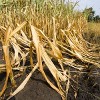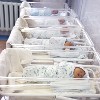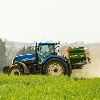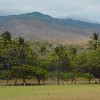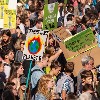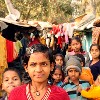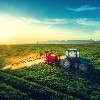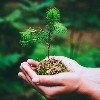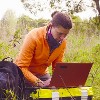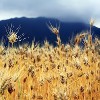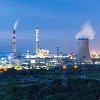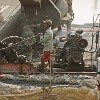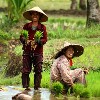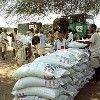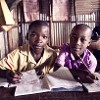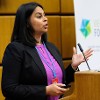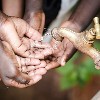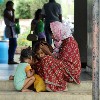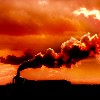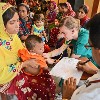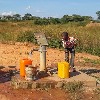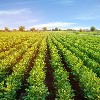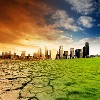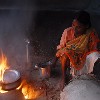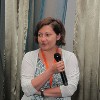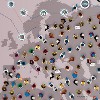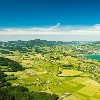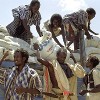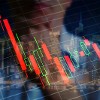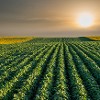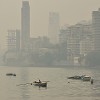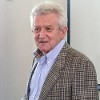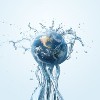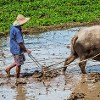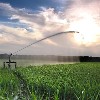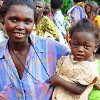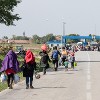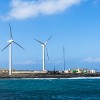IIASA News 2019
For more news, follow IIASA on Twitter
2019
Continued UK membership of IIASA brings new opportunities
The three UK Research and Innovation (UKRI) councils that jointly represent the UK membership of IIASA have confirmed funding for a further five years of UK membership of the institute. More
Could we cool the Earth with an ice-free Arctic?
The Arctic region is heating up faster than any other place on Earth, and as more and more sea ice is lost every year, we are already feeling the impacts. IIASA researchers explored strategies for cooling down the oceans in a world without this important cooling mechanism. More
Vienna Energy Forum 2020 announced at COP25
Her Excellency Maria Patek, Austria’s Minister for Sustainability and Tourism, announced the Vienna Energy Forum (VEF) 2020 during the high-level segment of the United Nations Conference on Climate Change (COP 25). More
Climate change and the threat to global breadbaskets
Extreme climatic conditions could lead to an increased risk of unusually low agricultural harvests if more than one global breadbasket is affected by adverse climate conditions at the same time. The findings of a new IIASA study show that these breadbaskets, the geographical areas responsible for growing much of the world’s food, are at risk to produce enough wheat, maize, and soybean, due to extreme temperatures. More
Highlighting the importance and vulnerability of the world’s water towers
Mountains and highlands are often referred to as natural “water towers” because they provide lowland communities with essential freshwater for drinking, irrigation, industry, food, and energy production. A new Nature study provides insight into this valuable resource, which is crucial to the welfare of 1.9 billion people. More
Differences in replacement level fertility point to inequalities
The percentage of the world’s population that is above or below the ‘replacement level of fertility’ has long been used as a measure of demographic development. A new study revisited how this metric is calculated and how useful it really is in terms of informing policy decisions. More
Informing better policies for an aging population
A new book by IIASA World Population Program researchers offers an opportunity to rethink how we define and measure aging to inform better policies for future societal and economic health. More
Crowdsourcing landscape restoration assessment in Indonesia
The Urundata mobile application will allow Indonesians to be more involved in efforts to restore forests and landscapes in the country. Users can contribute by playing games to help interpret satellite imagery and gather information on the ground. More
IIASA researchers among top 1% of most highly cited scientists
Several IIASA researchers from the Air Quality and Greenhouse Gases Program, the Energy Program, the Ecosystems Services and Management Program, and the Water Program, have been recognized again for their outstanding contribution to scientific literature. More
Beyond the green revolution
There has been a substantial increase in food production over the last 50 years, but it has been accompanied by a narrowing in the diversity of cultivated crops. New research shows that diversifying crop production can make food supply more nutritious, reduce resource demand and greenhouse gas emissions, and enhance climate resilience without reducing calorie production or requiring more land. More
How much energy do we really need?
Two fundamental goals of humanity are to eradicate poverty and reduce climate change, and it is critical that the world knows whether achieving these goals will involve trade-offs. New IIASA research for the first time provides a basis to answer this question, including the tools needed to relate basic needs directly to resource use. More
Nitrous Oxide levels are on the rise
Nitrous oxide is a greenhouse gas and one of the main stratospheric ozone depleting substances on the planet. According to new research, we are releasing more of it into the atmosphere than previously thought. More
Using mountains for long-term energy storage
The storage of energy for long periods of time is subject to special challenges. An IIASA researcher proposes using a combination of Mountain Gravity Energy Storage (MGES) and hydropower as a solution for this issue. More
Plants and fungi together could slow climate change
A new global assessment shows that human impacts have greatly reduced plant-fungus symbioses, which play a key role in sequestering carbon in soils. Restoring these ecosystems could be one strategy to slow climate change. More
Switching to solar and wind will reduce groundwater use
IIASA researchers explored optimal pathways for managing groundwater and hydropower trade-offs for different water availability conditions as solar and wind energy start to play a more prominent role in the state of California. More
Improving governance is key for adaptive capacity
Governance in climate vulnerable countries will take decades to improve, substantially impeding the ability of nations to adapt to climate change and affecting billions of people globally, according to new research published in Nature Sustainability. More
Exposing blind spots in the carbon budget space
The impact of 1°C of global heating is already having devastating impacts on communities and ecosystems across the globe. An international research group that included researchers from IIASA and Japan, identified biases towards some selected carbon budgets in the current scenario literature. They propose a more comprehensive approach to systematically explore the carbon budget scenario space. More
Integrated solutions for the Indus Basin
New framework helps decision makers find science-based pathways to address water resources and connected sustainability challenges in the Indus River basin. More
The long arm of childhood conditions
Available research on the impact of a person’s socioeconomic status during childhood suggests that the circumstances one grows up in matter a great deal for adult health. The results of a new IIASA study supports the notion of a “long arm of childhood conditions” that remains invisible beyond mid-life but can affect health satisfaction later in life. More
A roadmap to make the land sector carbon neutral by 2040
Land is critical to human livelihoods and wellbeing, while actions related to land use also play an important role in the climate system. IIASA researchers contributed to the development of a new roadmap outlining actions on deforestation, restoration, and carbon cuts that could lead to the land sector becoming carbon neutral by 2040 and a net carbon sink by 2050. More
Assessing the benefits and risks of land-based greenhouse gas removal
IIASA researchers collaborated with colleagues at a number of international institutions to assess the benefits and risks associated with six different land-based greenhouse gas removal options in light of their potential impacts on ecosystems services and the UN Sustainable Development Goals. More
Population aging to create pockets of climate vulnerability in the US
Population aging projections across the US show a divide between cities and rural areas, which could lead to pockets of vulnerability to climate change. More
Sharing data for improved forest protection and monitoring
Although the mapping of aboveground biomass is now possible with satellite remote sensing, these maps still have to be calibrated and validated using on-site data gathered by researchers across the world. IIASA contributed to the establishment of a new global database to support Earth Observation and encourage investment in relevant field-based measurements and research. More
Citizen science for sustainable development
Monitoring progress on the UN Sustainable Development Goals requires a huge amount of data. Citizen science could help fill important data gaps, say IIASA researchers. More
Who is telling the truth about their health?
When researchers or policymakers ask health related questions – which they do a lot – they often rely on self-reported rather than tested health data. IIASA researchers looked into how reliable this type of data is for research and found that, depending on country or age, self-reported data could be highly biased. More
Assessing the effects of climate change on future wheat production
Wheat is the world’s largest rain-fed crop in terms of harvested area and supplies about 20% of all calories consumed by humans. A new study has found that unless steps are taken to mitigate climate change, up to 60% of current wheat-growing areas worldwide could see simultaneous, severe and prolonged droughts by the end of the century. More
Operationalizing targets for biodiversity conservation and restoration
The Nature Map Consortium has introduced new global maps that integrate available data on biodiversity and carbon to assist country policies for biodiversity and land-based greenhouse gas emissions. More
Exploring the future of coal power in water scarce Asia
Many aspects of modern energy systems necessitate access to reliable water resources. The findings of a new study involving IIASA researchers shows that Developing Asia’s long-term electricity generation plans – which relies heavily on coal power generation – could be significantly impacted by regional changes in the availability of water under climate change. More
Exposing the dirty footprint of the broken grid
A newly released report by the International Finance Corporation (IFC) shows that fossil fuel-burning backup generators in developing countries produce as much energy as 700-1,000 coal-fired power stations, consume US$50 billion in annual spending, and emit dangerous chemicals into homes and businesses. More
Rethinking scenario logic for climate policy
Current scenarios used to inform climate policy have a weakness in that they typically focus on reaching specific climate goals in 2100 – an approach which may encourage risky pathways that could have long-term negative effects. A new IIASA-led study presents a novel scenario framework that focuses on capping global warming at a maximum level with either temperature stabilization or reversal thereafter. More
Landmark report outlines critical transitions for transforming food and land use
A new report released by the Food and Land Use Coalition (FOLU) is the first to assess the benefits of transforming global food and land use systems, as well as the mounting costs of inaction. The authors call on world leaders to act now and advance the economic case for change. More
How can we feed the world without overwhelming the planet?
Sustainable Development Goal (SDG) 2 calls for ending hunger, achieving food security and improved nutrition, and promoting sustainable agriculture. The environmental challenges posed by agriculture are however massive, and many fear that they will only become more pressing as we try to meet the growing need for food worldwide. IIASA researchers and colleagues from Japan propose alternative hunger eradication strategies that will not compromise environmental protection. More
The future is now: Science for achieving sustainable development
The United Nations launched a new Global Sustainable Development Report that is based on the work of 15 independent scientists, among them IIASA World Population Program Director Wolfgang Lutz. More
Shonali Pachauri appointed as IIASA Transitions to New Technologies Program deputy director
Shonali Pachauri will be the new IIASA Transitions to New Technologies Program deputy director. Pachauri will also continue as a senior research scholar in the Energy Program. More
Deep transformations needed to achieve the SDGs
The Sustainable Development Goals and the Paris Agreement on Climate Change call for deep transformations that require complementary actions by governments, civil society, science, and business. IIASA contributed to a new study outlining six major transformations that will be required to achieve these ambitious goals. More
Crawford Stanley "Buzz" Holling, 1930-2019
It is with profound sadness that IIASA marks the death of C.S. Holling, who was a researcher at IIASA from 1973-1975 and director from 1981-1984. His work founded the field of Adaptive Ecosystem Policy and Management at IIASA, and he led the institute as director during a time of great uncertainty. More
Taking on SDG 6: Launch of the Water Scarcity Clock
IIASA contributed to the development of the Water Scarcity Clock – a free webtool that allows decision makers to monitor the number of people around the globe suffering from water scarcity in real time. The new tool aimed at policymakers was launched in Stockholm on Sunday, 25 August to mark the start of this year’s World Water Week. More
Addressing causes of mortality in Zambia
Despite the fact that people in sub-Saharan Africa are now living longer than they did two decades ago, their average life expectancy remains below that of the rest of the world population. A new study looked into the importance of various causes of death in Zambia and how eliminating the most prominent of these would impact life expectancy in the country. More
Examining the link between caste and under-five mortality in India
In India, children that belong to disadvantaged castes face a much higher likelihood of not living past their fifth birthday than their counterparts in non-deprived castes. IIASA researchers examined the association between castes and under-five mortality in an effort to help reduce the burden of under-five deaths in the country. More
Uncertainty in emissions estimates in the spotlight
National or other emissions inventories of greenhouse gases that are used to develop strategies and track progress in terms of emissions reductions for climate mitigation contain a certain amount of uncertainty, which inevitably has an impact on the decisions they inform. IIASA researchers contributed to several studies in a recently published volume that aims to enhance understanding of uncertainty in emissions inventories. More
Preserving forests is critical to slowing global warming
Forests are the largest reservoirs of biomass on the planet and an important sink for carbon dioxide (CO2) emissions. An international team including researchers from IIASA analyzed decades of experiments to map the potential of forests to increase their biomass and continue to absorb and store CO2 in the future. More
Mapping the effects of drought on vulnerable populations
The greater frequency of droughts, combined with underlying economic, social, and environmental risks means that dry spells have an increasingly destructive impact on vulnerable populations, and particularly on children in the developing world. In a new study by researchers from IIASA and the University of Maryland in the US, the team set out to map at-risk populations at the global scale. More
Observation-driven research to inform better groundwater management policies
Groundwater maintains vital ecosystems and strongly influences water and energy budgets. Although at least 400 million people in sub-Saharan Africa depend on this valuable resource for their domestic water needs, the processes that sustain it and their sensitivity to climatic variability, are poorly understood. IIASA contributed to a study that looked into climate impacts on groundwater in light of changing climatic patterns in Africa. More
How much carbon dioxide can tropical forests absorb?
Current climate models suggest that trees will continue to remove manmade greenhouse gas emissions from the atmosphere, making it possible to stay within the targets set by the Paris Agreement. A study by an international team including researchers from IIASA however indicates that this uptake capacity could be strongly limited by soil phosphorus availability. More
Making a case for returning airships to the skies
Reintroducing airships into the world’s transportation-mix could contribute to lowering the transport sector’s carbon emissions and can play a role in establishing a sustainable hydrogen-based economy. According to the authors of an IIASA-led study, these lighter-than-air aircraft could ultimately increase the feasibility of a 100% sustainable world. More
Pathways to sustainable land use and food systems: First FABLE Consortium report launched
The Food, Agriculture, Biodiversity, Land, and Energy (FABLE) Consortium has released its first report, titled “Pathways to Sustainable Land Use and Food Systems”. More
Understanding the drivers of a shift to sustainable diets
One of the 21st century's greatest challenges is to develop diets that are both sustainable for the planet and good for our bodies. An IIASA-led study explored the major drivers of widespread shifts to sustainable diets using a newly developed computational model of population-wide behavioral dynamics. More
Lifting the fog on carbon budgets
The concept of a carbon budget has become a popular tool in guiding climate policy since the Intergovernmental Panel on Climate Change’s (IPCC) Fifth Assessment Report was released in 2014. IIASA researchers were involved in the development of a framework that can help scientists determine which factors affect the size of the remaining carbon budget and how they interact. More
Protecting a forgotten treasure trove of biodiversity
The lesser-known Cerrado biome in Brazil is a hotspot of biodiversity, but it is being destroyed at an alarming rate by unsustainable agricultural activities. A study involving IIASA researchers published in the journal Science Advances, calls attention to this forgotten region and urges the international community to support measures for its protection. More
Curbing indoor air pollution in India
Clean cooking energy transitions are extremely challenging to achieve, but they offer enormous potential health, environmental, and societal benefits. A study by researchers from IIASA, the University of British Columbia, and the Stockholm Environment Institute provides new insights about an Indian program that aims to solve one of the most difficult developmental challenges of the 21st century – smoky kitchens. More
The Digital Revolution: Opportunities and challenges for sustainable development
The Digital Revolution has brought about rapid technological change, transforming the way societies function and how humanity impacts the Earth. A new report describes how digitalization can transform the world and how these changes can be planned for as we move towards 2030 and beyond. More
Picturing access to energy for all in sub-Saharan Africa
Satellite images showing nighttime lights on different continents have long been recognized as an indicator of the availability and use of electricity around the world. IIASA researchers examined the precision with which these images can be converted into detailed maps of electricity access in sub-Saharan Africa. More
Leena Srivastava appointed IIASA Deputy Director General for Science
The Vice Chancellor of the TERI School of Advanced Studies, New Delhi, Leena Srivastava will join the International Institute for Applied Systems Analysis (IIASA) as the Deputy Director General for Science on 15 November 2019. More
Elena Rovenskaya appointed as IIASA Acting Deputy Director General
Current IIASA Advanced Systems Analysis Program Director and Evolution and Ecology Acting Program Director, Elena Rovenskaya, has agreed to assume the role of Acting Deputy Director General until the newly appointed candidate, Leena Srivastava, will take up the position of IIASA Deputy Director General for Science later this year. More
Nebojsa Nakicenovic recognized as IIASA Honorary Scholar
Professor Nebojsa (Naki) Nakicenovic was recently awarded the IIASA Honorary Scholar for his outstanding contribution and service to the institute. More
More energy needed to cope with climate change
A new study published today in Nature Communications by researchers from IIASA, Boston University, and the Ca’ Foscari University of Venice found that by mid-century climate change will increase the demand for energy globally, even with modest warming. More
Exploring the causes of persistent corruption
IIASA researchers used a novel approach to explore the key processes and conditions that determine corruption levels. Their analysis shows that transparency about the integrity of institutions is key to fighting corruption, and that vigilance against corruption must be maintained despite its cost, even when corruption levels appear to be low. More
Education trumps age-structure in terms of providing a demographic dividend
The relationship between population changes and economic growth has been a controversial topic among demographers for many years. A study published in the Proceedings of the National Academy of Sciences of the United States of America (PNAS) today, challenges the dominant view that fertility decline and changes in age structure are key drivers of economic growth. More
Is there a demographic need for migration in Europe?
A European Commission-IIASA flagship report has found that an increase in the EU population aged 65+ is certain – regardless of higher fertility or migration. However, raising labor force participation (particularly for women) and improved education of natives and migrants have the power to nullify aging-related worries. More
New study maps symbiotic relationships in forests worldwide
Data collected from over 1 million forest plots reveals patterns of where plant roots form symbiotic relationships with fungi and bacteria. The study is the first proof of a new ecological law, and lends new insight into potential climate feedbacks. More
Shedding light on the key determinants of global land use projections
Land use is at the core of various sustainable development goals. An international research group consisting of researchers from several institutions including PBL Netherlands, IIASA, and the Potsdam Institute for Climate Impact Research, endeavored to disentangle the key determinants of global land use projections in a study published in Nature Communications this week. More
Horizon 2020 project launches innovative earth observation
IIASA will play a key role in a Europe-wide project to transform earth observation data into useful products and services to support action on sustainable development and climate change. More
Fixing a broken food system
In a comment in Nature, researchers lay out a solution for climate change and food security that draws on an integrated view of agriculture, biodiversity, trade, and nutrition. More
Weighing up trade-offs between food security and climate mitigation
IIASA researchers collaborated with colleagues in Japan to clarify the impacts of stringent climate mitigation policies on food security. The team identified smart and inclusive climate policy designs where the risk of food-security for hundreds of millions of people could be addressed at a modest cost. More
Trade could be key to balancing the conservation of natural freshwater sources and food security
An IIASA study published in the journal Nature Sustainability today, evaluated whether water for the environment could be prioritized under growing competition from other sectors. The results indicate that this could be achieved by shifting crop production from water scarce- to water abundant regions and tripling international food trade. More
Reducing carbon emissions while improving health is economically attractive
The findings of a study involving researchers from IIASA, Princeton, and several other institutions looked into the question of how much the current generation should invest in reducing carbon emissions for the benefit of future generations. Their findings support the climate targets of the Paris Agreement. More
Gender in the transition to energy for all: From evidence to inclusive policies
IIASA researchers contributed to a new report released by the ENERGIA International Network on Gender and Sustainable Energy that looked at the role of gender in achieving sustainable energy for all. More
Shocking economics: computing the effects of major events on out-of-equilibrium economies
A shock pushes economies out of a state of equilibrium. Modern macroeconomics are still based on the assumption of equilibria. That makes them fail when dealing with economies in times of crises. IIASA researchers and their colleagues from research partner Complexity Science Hub Vienna (CSH) are proposing a new method borrowed from physics that makes the effects of major events on out-of-equilibrium economies computable for the first time. More
Investigating the global cropland footprint of EU non-food imports
Palm oil, soya, and ethanol, are among the most used plant-based resources in the production of a variety of everyday products ranging from cosmetics and fuel, to plastic straws. The results of a study by researchers from IIASA and the Vienna University of Economics and Business (WU) shows that Europe imports about 65% of its raw materials for non-food products from abroad – and demand continues to grow. More
Rethinking conservation efforts for improved biodiversity
A study published online by the journal Science, looked into why the global commitment towards the expansion of protected areas has not delivered the expected conservation benefits. The researchers propose a new target and a set of indicators that can galvanize global conservation efforts and lead to positive biodiversity outcomes. More
Poor air quality to remain a problem in India despite pollution control policies
According to an independent study released today by the International Institute for Applied Systems Analysis (IIASA) and the Council on Energy, Environment, and Water (CEEW), more than 674 million Indian citizens are likely to breathe air with high concentrations of PM2.5 in 2030, even if India were to comply with its existing pollution control policies and regulations. More
Tibor Vasko (1931-2019)
It is with great sadness that IIASA marks the death of Tibor Vasko on 18 March 2019. As a signatory of the IIASA Charter and later as an IIASA honorary scholar and Dean of the Young Scientist Summer Program, Vasko’s passing is a profound loss to the institute and the field of science diplomacy. More
Radical transformation is required to meet sustainable development
An IIASA scientist has contributed to a new Global Environment Outlook report that details how societies can meet goals to support a healthy planet and growing population, provided they embrace integrated strategies. More
Hot or cold, rural residents more vulnerable to extreme temperatures
A study in China’s Zheijiang Province shows that people in China’s rural communities are more vulnerable to both hot and cold temperature extremes than people living in urban areas. More
New measures show population aging likely to end this century
Policymakers have long been concerned about the effects of an aging population on society, but researchers at IIASA have developed a new tool that shows population aging will likely end by the middle of the century in high-income countries. More
New report identifies critical investment needs for climate-friendly infrastructure
IIASA researchers contributed to a new World Bank report that provides a comprehensive estimate of spending needs for infrastructure goals in developing countries. It shows that smart investments could allow countries to achieve climate goals while simultaneously filling basic needs such as water and energy. More
Awards for young scientists
Three exceptional young scientists from the 2018 Young Scientists Summer Program (YSSP) have been recognized as YSSP awards finalists. Two will receive funding to continue their research projects at IIASA and a third candidate has been given an Honorable Mention for outstanding effort. More
Stalled fertility declines linked to disruptions in women’s education in Africa
A slowdown in fertility decline in sub-Saharan Africa was partially caused by disruptions in women’s education in the 1980s, according to new IIASA research. More
Addressing cooling needs and energy poverty targets in the Global South
With most of the northern hemisphere currently in the icy grip of one of the coldest winters ever recorded, in the south it is record breaking heat that is the problem. The results of a new IIASA study show that between 1.8 and 4.1 billion people require access to indoor cooling to avoid heat related stresses. More
Diffusing the methane bomb: We can still make a difference
The Arctic is warming twice as fast as the rest of the planet, causing the carbon containing permafrost that has been frozen for tens or hundreds of thousands of years to thaw and release methane into the atmosphere, thereby contributing to global warming. The findings of a study that included researchers from IIASA, however, suggest that it is still possible to neutralize this threat. More
Biofuel production in sub-Saharan Africa could be prioritized for aviation
A new study, designed by IIASA researchers for conservation charity WWF, has found that while there is a small but not insignificant potential for the production of sustainable biofuels in sub-Saharan Africa, this should be prioritized for the aviation industry which has limited other options when it comes to reducing carbon emissions. More
New study establishes causal link between climate, conflict, and migration
IIASA-led research has established a causal link between climate, conflict, and migration for the first time, something which has been widely suggested in the media but for which scientific evidence is scarce. More
Integrated pathways for meeting climate targets and ensuring access to safe water
IIASA researchers have led work to develop new pathways showing how the world can develop water and energy infrastructure consistent with both the Paris Agreement and the UN Sustainable Development Goal 6 (SDG6) – Ensure availability and sustainable management of water and sanitation for all. More





